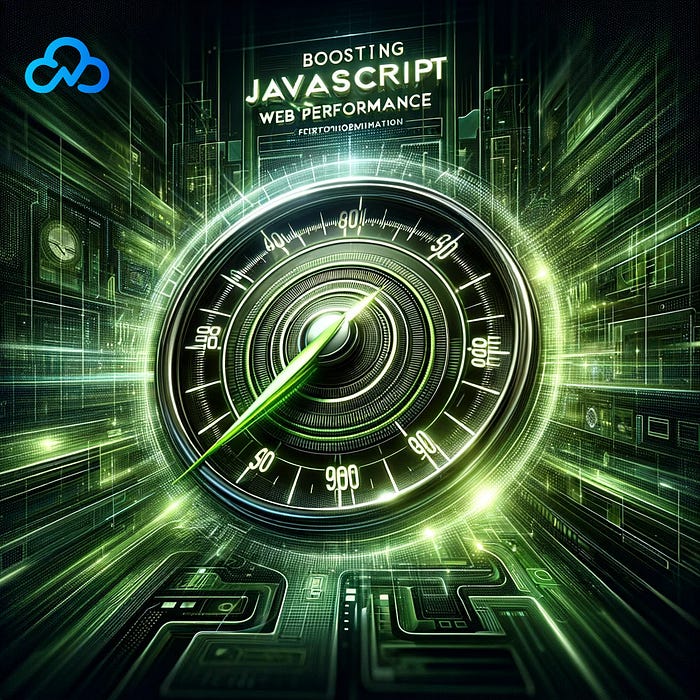Boosting JavaScript Web Performance with PartyTown

In the world of technology, where speed’s crucial, for achieving success web performance is not just a technical matter but also a vital aspect of running a successful business. Slow and unresponsive websites can result in losses both in terms of user engagement and revenue. This fact has been extensively. Well documented. However web developers often face a dilemma. They need to incorporate third party scripts such as Google Analytics, Facebook Pixel or an Intercom chat widget to gain insights and engage with users effectively. Unfortunately these scripts can unintentionally slow down website performance. Fortunately the introduction of Party Town — an open source library — presents a solution to this common challenge. Let’s proceed further with boosting JavaScript web performance with partytown.
The Puzzle of Performance
The predicament begins enough. One person requests Google Analytics another insists on having Facebook Pixel integrated into the website and then someone wants an interactive chat widget added well. These tools play a role in business operations. Heavily rely on JavaScript, which can cause congestion on the main thread and lead to longer loading times. When a Lighthouse report identifies high blocking times due, to these scripts developers are often unfairly blamed despite following business requirements.
Understanding the Root Issue
The problem arises as a result of activities that “block rendering.”Imagine a HTML page with a script embedded in the body simulating a third party resource. This script, while it works can hinder user interaction. Make the website seem like its visible but not interactive, like a “zombie”. These situations can be frustrating for users. Result in an experience leading to potential loss of revenue or traffic.
Introducing Party Town: A Solution by Performance Enthusiasts
Party Town is the brainchild of the team behind the Quick framework, known for their focus on web performance. The brilliance of this library lies in its approach to handling essential scripts. It categorizes scripts that’re not crucial for the page load (such as marketing tools and optional widgets) and moves them to a web worker. This strategy effectively lightens the load on the thread since web workers allow JavaScript to run tasks in the background on a separate thread. In TypeScript, it’s essential to check if the key exists in the object typescript to ensure the robustness and reliability of the code.
Practical Implementation, with Party Town
Now lets explore how Party Town can be incorporated into your project. Lets consider a Vanilla JavaScript Web Performance with PartyTown project using Vite as our build tool. The first step is to install the Party Town library. Then we need to identify which scripts should not block the thread and modify them with type=”text/partytown”. This simple adjustment marks them for processing in a web worker.
When it comes to frameworks, like Next.js, Nuxt or SvelteKit Party Town provides integration guides. However if you’re working with Vanilla JS there are an steps involved;
1. Hosting the Library: To use Party Town in a Vanilla JS setup you’ll need to host its JavaScript files alongside your website. A helpful tool in Party Town simplifies this process by allowing you to easily copy the required files into your directory using a command.
2. Running Party Town: In a Vanilla JS setup it is recommended to include the Party Town snippet into your code. This can be done by creating a script element in the DOM and setting its content as the Party Town snippet. Finally append this script element to the body of your webpage. You can also customize Party Town based on requirements like forwarding for Google Tag Manager.
The Impact; A Performance Case Study
Implementing Party Town and conducting a Lighthouse performance analysis reveals improvements. The sluggish website now achieves perfect performance scores, with minimal JavaScript blocking time. This enhancement does not elevate the user experience. Also changes how developers approach balancing business requirements and performance optimization.
Integrating Party Town: A Practical Example
To illustrate the use of Party Town, let’s go through a simple implementation in a Vanilla JavaScript project. The goal is to offload third-party scripts like Google Analytics or Facebook Pixel to a web worker, improving the main thread’s performance.
Step 1: Install Party Town
First, install Party Town in your project:
npm install @builder.io/partytown
Step 2: Identify Third-Party Scripts
Locate the third-party scripts in your HTML file. Typically, these would be scripts for analytics or chat widgets. For example:
<script src=”path/to/google-analytics.js”></script>
<script src=”path/to/facebook-pixel.js”></script>
Step 3: Modify Script Types
Change the type attribute of these scripts to text/partytown. This modification signals Party Town to handle these scripts:
<script type=”text/partytown” src=”path/to/google-analytics.js”></script>
<script type=”text/partytown” src=”path/to/facebook-pixel.js”></script>
Step 4: Copy Party Town Library to Public Directory
Run the Party Town utility to copy the necessary files into your public directory. Add a script in your package.json:
“scripts”: {
“copy-partytown”: “npx partytown copy”
}
Then execute the script:
npm run copy-partytown
Step 5: Inline Party Town Initialization
Finally, inline the Party Town initialization script in your HTML. This can be done by creating a script element and appending it to the body:
<script>
// Create a script element for Party Town
const partytownScript = document.createElement(‘script’);
// Set the script source to the Party Town initialization snippet
partytownScript.src = ‘path/to/partytown/init.js’;
// Append the script to the body
document.body.appendChild(partytownScript);
</script>
Configuring Party Town (Optional)
If additional configuration is needed, such as forwarding for Google Tag Manager, create an additional script tag before the Party Town initialization:
<script>
// Configuration for Party Town
window.partytown = {
// Configuration options here
};
</script>
With these steps, Party Town is now integrated into your project. Third-party scripts are offloaded to a web worker, significantly reducing the main thread’s load. This implementation should result in improved performance metrics, as evidenced by tools like Lighthouse.